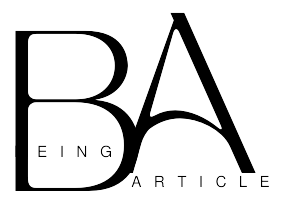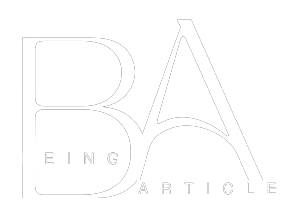How To Say I Don’t Know In An Interview?
It’s okay not to know the answer to a question during an interview, as it’s impossible to know everything. However, it’s important, to be honest and transparent when faced with a question you don’t know the answer to. You can start by acknowledging that you don’t know the answer and then express a willingness to learn more about the topic. Alternatively, you can try to think out loud and reason through the question to show your thought process and problem-solving skills, but ultimately admit if you’re unsure. Remember that interviews are also an opportunity to showcase your willingness to learn and grow, so don’t be afraid, to be honest about what you don’t know.
Tips For An Interview
When you’re in a job interview, it’s common to get asked questions you don’t know the answer to. Of course, it doesn’t mean you won’t get hired for the position, but knowing how to respond to this situation can alleviate anxiety and help you maximize the experience.
Don’t Use Humor Or Sarcasm
Using humor and sarcasm can be risky in a professional setting, like an interview. They are often perceived as dismissive or disrespectful, making you look insecure and unfit for the job.
There are several reasons to avoid humor in an interview, including the fact that it can be distracting and come off as clumsy or scripted. You also need to be careful about your jokes’ type, appropriateness, and timing.
When you are in an interview, you must present yourself as the best candidate for the job. In addition, you need to prove that you are smart, friendly, and have good leadership skills.
A sense of humor can help you do this, but using it carefully and in the right context is important. The interviewer wants to see that you are well-rounded and not just someone who can laugh at yourself.
It is also best to avoid using offensive humor. This includes racist, sexist, and homophobic jokes targeted at groups you don’t belong to.
This is especially true if you are a person of color or are LGBTQ+ since these jokes can be considered inappropriate and could hurt your chances of getting the job.
Likewise, gross-out and macabre humor can also be off-putting. Unless you are a stunt person or have a good reason to be funny, these jokes shouldn’t be used in an interview.
Finally, it is also important to avoid political humor, which can be perceived as very divisive. The interviewer may not understand your politics and may not be supportive of them.
If you want to say I don’t know in an interview, it is best to leave it at that. This will show that you are honest and will let the interviewer know you are trying your best to find an answer.
Don’t Try To Solve The Problem.
Despite what you may think, the best answer to this question isn’t going to be one you come up with on the spot. Instead, take the time to sit back and think about what you’re saying. This will help you formulate a thoughtful response that will have the interviewer thinking about you long after the fact.
Using the right words and tone can go a long way toward ensuring your next hire is a stellar employee who will immediately impact your company. The best problem-solving candidate is likely to be a multitasker with a healthy dose of initiative who will take the lead on your most difficult projects and who can delegate with aplomb. The best part is that you’ll have a more productive and enjoyable working relationship in the long term. The best way to do this is to plan your interview so you’re not caught off guard when the big interview comes around.
Don’t Give Up
It’s a common occurrence during interviews to be asked questions that you don’t know the answer to. This is a great opportunity to demonstrate your willingness to learn and have good problem-solving skills.
However, you should avoid using humor or sarcasm to cheat your way through the question. This can come off as unprofessional and make you seem less experienced or competent than you are.
Instead, try to redirect the conversation to another topic that you do know about. For instance, if the interviewer asks about a specific industry or role, explain your internal brainstorming process to see how you would approach that topic. You may also want to relate a time that you were unfamiliar with a concept but were able to efficiently solve the problem, showing your ability to think on your feet and work effectively as a team member.
It’s also important to remember that the interview is a two-way conversation. While the interviewer might be looking to see whether you’ll fit into their company culture and be able to perform at your best, you’re also interested in learning more about the job and the company. This is a chance to show your willingness to learn new information and use that knowledge to improve the company’s business. It’s better to say you don’t know the answer than to act like you don’t have any idea. It will also give the interviewer a better sense of how you think and work well with others.
Don’t Make Excuses
It is often tempting to try to come up with an answer to a question that you don’t know the answer to. However, this tactic can backfire and make you look dishonest, damaging your chances of landing the job.
Instead, you should buy yourself a little time to think about your answer and allow yourself to get it right. For example, you could say that you aren’t sure what they are asking or want to ask them for clarification. This will allow you to explain your thought process and develop an intelligent response that the interviewer will most likely appreciate.
While it is not always easy to admit that you do not know the answer, it is important to acknowledge that you are a learner and willing to work hard to improve yourself. This is an important quality that many employers seek in new hires. Embracing your inadequacies and letting the interviewer know you are learning is the best way to show that you are a team player and can work well with others. It is also a great opportunity to demonstrate your attention to detail, which can help you get the job.
What Should You Do In An Interview?
Whether you’re interviewing in person or online, there are some things that you should do to ensure your interview goes as smoothly as possible.
How you dress, your handshake, and even how you sit can make an impression on interviewers. Read on to learn more about what you should do in your interview.
Dress appropriately
What you wear to an interview greatly impacts your overall appearance and image. So whether it’s an interview for a large company or an entry-level job, you want to present yourself in the best possible light.
Fortunately, several guidelines can help you decide what to wear for an interview. The first is to research the company and its dress code.
If you’re unsure what to wear, call the person scheduling your interview or the human resources department and ask them about their expectations. Typically, you should dress just one step above the formality of the company’s dress code.
For men, a suit and tie are usually the most appropriate choice. However, if the company has a more casual dress code, a suit, and a button-down shirt might be an acceptable choice.
You also need to ensure that your clothing fits well. It’sAgain, it’s best to try the outfit on before the interview, so you can be certain that it looks and feels good.
Women should choose dresses that are flattering and not too short or revealing. In addition, they should be a neutral color and avoid patterns or anything too flashy.
Another important consideration is the type of footwear you wear. You should be comfortable in the shoes you choose, but you don’t want to show off your feet or scuff them up.
A pair of sturdy, polished leather or other dark shoes is a safe bet. You should also carry a briefcase or smart laptop bag to keep your papers and resume at the interview.
If you’re a woman, ensure your hair is neat and well-groomed. You should also wear a conservative makeup look that won’t distract from your appearance.
The shoes you wear can also make a huge difference in your interview’s outcome. You shouldn’t wear clunky, over-the-top heels or any other type of shoe that is not appropriate.
You’ll also want to choose clothes matching the climate and season. For example, if it’s a warm climate and you’re going to be outside most of the time, consider wearing jeans instead of shorts. This will allow you to stay cool and comfortable during the interview.
Arrive on Time
If you have a job interview, you’ll want to arrive on time to leave a good first impression. It is important to show up at least ten minutes early to register with the receptionist and get a drink of water. This will help you feel confident and relaxed, which is what you need to give your best interview performance.
You may also be asked to arrive before your interview time to fill out paperwork, such as background check authorizations or employee eligibility forms. This is especially common if you are applying for a position that requires extensive screening or background checks.
One way to ensure you arrive on time is to plan out your trip before the day of your interview. This will help you avoid any traffic delays or obstacles that might pop up on your route. It will also help you get familiar with the location and parking situation if it’s unfamiliar.
Regardless of whether you plan to use public transportation or drive, be sure to take the time to practice your route a week to a few days in advance so that you can be prepared if you encounter any issues along the way. For example, if you’re headed to an office building or downtown location you have never visited, drive to the area to check out the routes and parking options.
Once you’ve made your final plans, contact the hiring manager before your interview to let them know you will be late. This will help you avoid making any blunders and create a positive impression on the hiring manager.
If you are late, be courteous to the hiring manager’s time and offer a valid reason for your delay. This should include a time frame you expect to be late and a sincere apology for your inconvenience.
Arriving too early can signal the hiring manager negatively and make it difficult for them to schedule the interview. It can also cause them to read your arrival time as a sign of desperation, which will put you at a disadvantage compared to other applicants.
Be Prepared With Questions
There are a lot of things to consider when you’re interviewing for a job. For one, you must be prepared with questions that will make you stand out from the other candidates. You should also be ready for any possible tests or evaluations that the interviewer may want to have you perform.
Before your interview, be sure to research the company and the role you’re applying for. Doing this lets you get an idea of what the job entails and how it will help you reach your career goals. It’s also a good idea to check out the job description and the company website to see what qualifications, skills, and experience they look for in candidates.
Once these things are down, you should practice answering these questions before the interview. This will give you an idea of how to answer them in a way that makes you seem confident and knowledgeable about the job.
Practicing will also help you become more comfortable speaking in front of others, especially in a professional setting. You can rehearse your answers with friends, in a round robin, or even tape them to playback.
Another great thing to do is to prepare a letter to send to the interviewer a few days after your interview. This will show them that you still want the job and allow you to highlight any points you might have missed in the interview.
When writing the letter, you should include the details of your interview and a thank you note. This will help you leave a lasting impression and ensure that the interviewer remembers you after the interview.
The letter can be sent to the person you interviewed or the hiring manager. It should contain a greeting, a paragraph of information about your qualifications and the position you’re applying for, and an invitation to contact you if they have any further questions.
Lastly, it is a good idea to avoid alcohol the night before and have a healthy breakfast on the day of your interview. This will help you stay calm and focused during the interview.
Don’t Be Afraid to Ask For Feedback.
When interviewing for a job, it is important to show the hiring manager that you are committed to learning and growing from your mistakes. However, this is not always easy. If you don’t ask for feedback, you can miss out on the chance to improve your interview performance and land a new position.
In a recent video, CareerBuilder’s senior talent acquisition specialist Michelle Wolkiewicz says that most candidates do not ask for feedback, even though it is an essential part of the job search process. Not only is this bad form, but it can also hurt you in the long run.
If you decide to ask for feedback, the timing is very important. For example, sending your letter within 24 hours of the rejection will give you enough time to receive feedback and make any adjustments you need to make to be a better candidate in the future.
The interviewer will be very grateful if you take the time to ask for feedback, and they will be able to provide you with helpful information to help you in your future searches.
You can request feedback from a recruiter or hiring manager after an interview by email, but you should always be polite. It is common for recruiters and hiring managers to get many job applications, so it may take a while before they have time to respond to your email.
When you request feedback from a recruiter or hiring Manager, explain why you are asking for it. This will let them know that you are sincerely interested in improving yourself and will help them feel more receptive to giving you feedback.
Ultimately, the best way to approach this process is with a positive attitude. The right attitude can open the door to getting and putting the feedback you need into practice.
You can also use this opportunity to thank the recruiter or hiring manager for their time and let them know how much you appreciated their time reviewing your application. This will help them feel receptive to your request and ensure they will continue to keep you in mind when opportunities arise.
FAQ’s
Is it okay to say “I don’t know” in an interview?
Yes, it’s okay to say “I don’t know” in an interview if you genuinely don’t have an answer to a question. It’s better to be honest than to make something up or try to bluff your way through.
What are some polite ways to say “I don’t know”?
Some polite ways to say “I don’t know” include phrases like “I’m not certain”, “I’m not sure”, or “I don’t have that information on hand”.
How can I prepare for questions I don’t know the answer to?
It’s impossible to prepare for every question you might be asked in an interview, but you can prepare by researching the company and industry, practicing common interview questions, and thinking through your own experiences and qualifications. If you encounter a question you don’t know the answer to, take a moment to gather your thoughts and provide an honest, thoughtful response.
Can I ask for clarification if I don’t understand a question?
Yes, it’s okay to ask for clarification if you don’t understand a question. You might say something like “I’m not sure I understand the question, could you please repeat it or provide some additional context?”
How can I demonstrate my problem-solving skills if I don’t know the answer to a question?
If you don’t know the answer to a question, you can still demonstrate your problem-solving skills by thinking through the problem and proposing a possible solution. You might say something like “I don’t know the answer off the top of my head, but I would approach the problem by doing X, Y, and Z.”
How can I avoid sounding incompetent if I don’t know the answer to a question?
To avoid sounding incompetent, be honest and upfront about your lack of knowledge, but also demonstrate your willingness to learn and your ability to think critically. You might say something like “I don’t know the answer to that question, but I would be happy to research it and get back to you with a more informed response.”



























